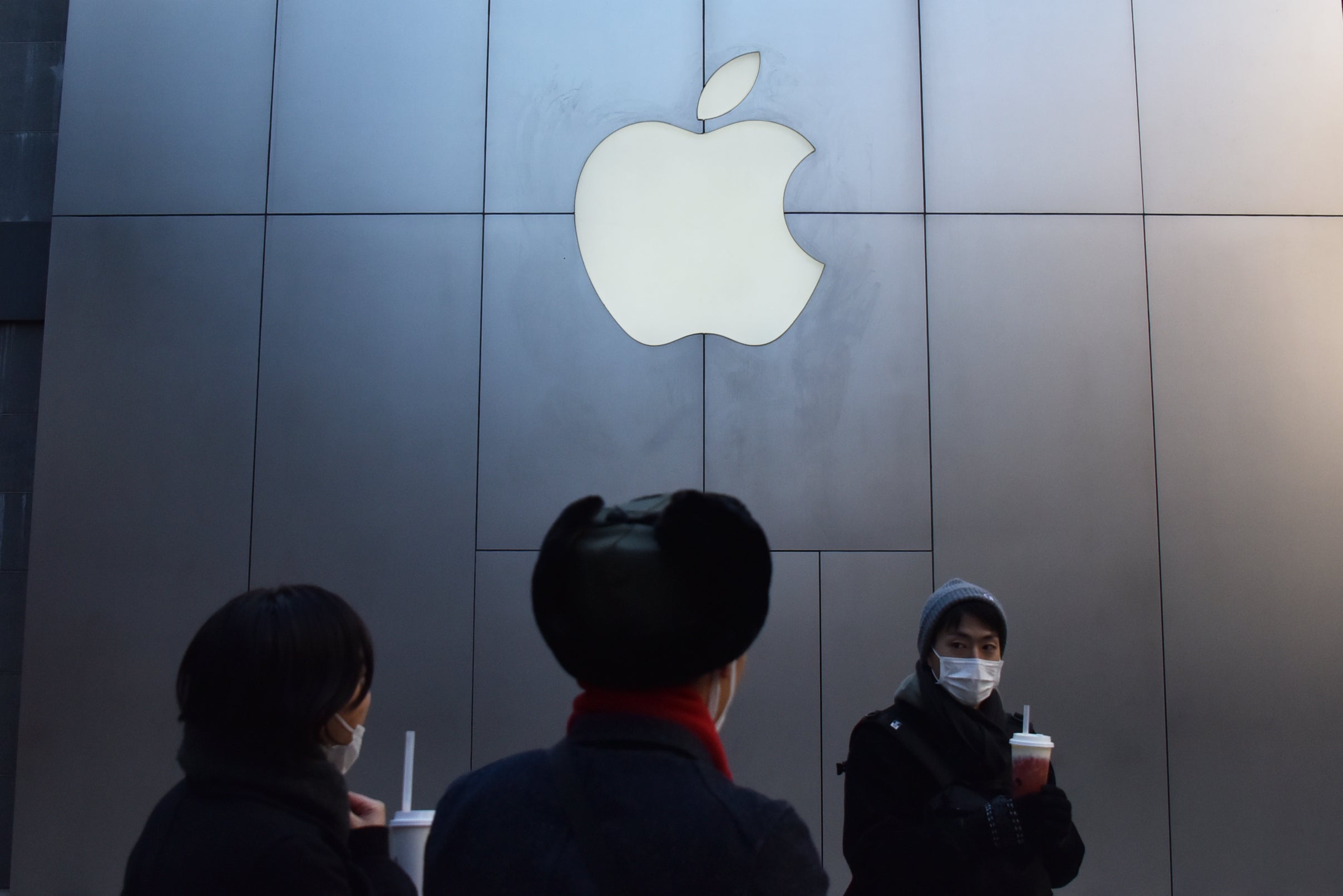Could China be about to take a big bite out of Apple’s iPhone business?
Rumours suggest that the Chinese government is ready to bear down on the US tech giant in the latest tit for tat move with the US – getting caught in the middle of diplomatic rift could cost the world’s most valuable company dear, writes Andrew Griffin


China has long been a sore spot for Apple. The iPhone maker's significant presence in the country as both a manufacturer and retailer means it has faced sustained criticism and even danger.
Critics have questioned its complicity in the poor conditions of the people who make its devices there, the way that it is forced to compromise the security of Chinese iPhone users and much more besides.
But China has been gloriously profitable for Apple, too, which is presumably why the two have continued their relations even amid those difficulties. For most major technology companies, including Google and Facebook parent company Meta, the difficulties have been sufficient that they have largely avoided being involved in China, though both tried. Apple has been different, in part because of the complicated business of actually making physical goods.
In recent years, however, that relationship between Apple and China has become more strained. Production problems caused by covid lockdowns meant Apple struggled to get enough iPhones out of China to meet demand. A smaller and smaller proportion of iPhones are made in the country each year, and Apple has instead increasingly looked to India. Only six months ago, Tim Cook, the Apple chief executive, called the relationship between Apple and China "symbiotic"; in practice, however, the two have moved apart.
And now recent days have heard whispers from China that the government will ban the use of Apple devices among government workers – whispers that have led to fears that yet more curbs are due to come. Apple's share price has tumbled in the past couple of days, falling 7 per cent as a reflection of fear that one of the company's biggest markets could be shrinking. The fears come just days before Apple releases its most important product of the year, the iPhone 15, at an event on 12 September.
It is not exactly clear why China has launched the new rules. Even their announcement has been unclear: there has been no public announcement, and reports suggest that the message has not necessarily made its way around government departments properly. There might be no ban at all. Some of the fear comes from misinformation: a viral social media post suggesting that state-owned carrier China Mobile would not sell the device seems to have contributed to much of the anxiety, and the network had to issue a rare public denial.
What is clear, however, is that much of Apple's recent difficulties with China are not really anything to do with iPhones, or even the people making them. Instead, Apple is at the heart of yet another quiet but forceful fight between China and the US.
The latest curbs are not the first time in recent years that Apple has been caught in the crossfire between the two countries. Under Donald Trump, when talk of a trade war between the US and China was louder and more consistent, Apple regularly faced problems. As tariffs ramped up, rumours constantly suggested that Apple could be hit by substantial tariffs on many of its devices, which would make them more expensive to export from China – though eventually it largely avoided the worst of them.
This time around, the Chinese ban on official iPhones seems to be part of a response to the US's ongoing attempts to ban TikTok, which is owned by China's Bytedance. At the very least, there is a neat mirroring: the US has banned TikTok from official devices, and now China is banning those same official devices.
If it is an attempt at retribution from Beijing, Apple may be worried. US officials often talk of banning TikTok entirely – and if that led in turn to a complete ban on iPhones, then it could be disastrous for Apple. Government iPhones are no doubt a tiny sliver of Apple's business, but the country as a whole accounts for 19 per cent of its revenues, so an escalation of restrictions could cost Apple hundreds of millions of dollars each year.
What’s more, Apple is doubly exposed to China: it is not only a hugely popular market for buying iPhones, but the place that the vast majority of them are made. Apple could theoretically deal with even a total ban in the country, even if its profits would drop dramatically – but without China making its devices, it wouldn’t have enough of them to sell anywhere else in the world, either. Recent years have given enough examples of that, as covid and lockdowns slashed production and left Apple delaying releases of new devices and running out of stock once they were out.
China was central to Tim Cook’s rise to become Apple’s chief executive: as its operations head, he built that China-centric manufacturing empire. Since he took over the company, he has been involved in a delicate balancing act on China: staying close enough to ensure the company can continue to make and sell iPhones, but not close enough to cause reputational issues, for the most part. In recent months, however, that has become more difficult, and both he and Apple has received increased scrutiny on how they do business in the country.
Mr Cook has managed those difficulties with a quiet poise that has allowed his company to become the biggest in the world, and its influence has spread across the globe. But the current troubles in China show that even the Earth's most powerful company is at the mercy of international affairs.




Join our commenting forum
Join thought-provoking conversations, follow other Independent readers and see their replies
Comments